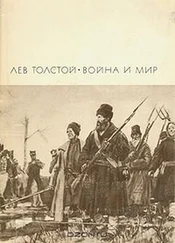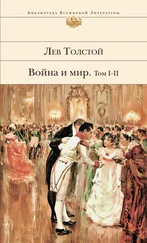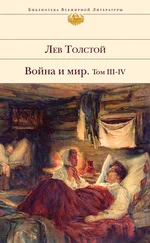| Very sinister reports of the position of the army reached him as he went along, and the appearance of the troops in their disorderly flight confirmed these rumors. |
Самые зловещие слухи о положении армии доходили до него дорогой, и вид беспорядочно-бегущей армии подтверждал эти слухи. |
| "Cette armee russe que l'or de l'Angleterre a transportee des extremites de l'univers, nous allons lui faire eprouver le meme sort-(le sort de l'armee d'Ulm)." * He remembered these words in Bonaparte's address to his army at the beginning of the campaign, and they awoke in him astonishment at the genius of his hero, a feeling of wounded pride, and a hope of glory. "And should there be nothing left but to die?" he thought. "Well, if need be, I shall do it no worse than others." * "That Russian army which has been brought from the ends of the earth by English gold, we shall cause to share the same fate-(the fate of the army at Ulm)." |
"Cette arm?e russe que l'or de l'Angleterre a transportée, des extr?mit?s de l'univers, nous allons lui faire ?prouver le m?me sort (le sort de l'arm?e d'Ulm)", ["Эта русская армия, которую английское золото перенесло сюда с конца света, испытает ту же участь (участь ульмской армии)".] вспоминал он слова приказа Бонапарта своей армии перед началом кампании, и слова эти одинаково возбуждали в нем удивление к гениальному герою, чувство оскорбленной гордости и надежду славы. |
| He looked with disdain at the endless confused mass of detachments, carts, guns, artillery, and again baggage wagons and vehicles of all kinds overtaking one another and blocking the muddy road, three and sometimes four abreast. |
"А ежели ничего не остается, кроме как умереть? думал он. Что же, коли нужно! Я сделаю это не хуже других". Князь Андрей с презрением смотрел на эти бесконечные, мешавшиеся команды, повозки, парки, артиллерию и опять повозки, повозки и повозки всех возможных видов, обгонявшие одна другую и в три, в четыре ряда запружавшие грязную дорогу. |
| From all sides, behind and before, as far as ear could reach, there were the rattle of wheels, the creaking of carts and gun carriages, the tramp of horses, the crack of whips, shouts, the urging of horses, and the swearing of soldiers, orderlies, and officers. |
Со всех сторон, назади и впереди, покуда хватал слух, слышались звуки колес, громыхание кузовов, телег и лафетов, лошадиный топот, удары кнутом, крики понуканий, ругательства солдат, денщиков и офицеров. |
| All along the sides of the road fallen horses were to be seen, some flayed, some not, and broken-down carts beside which solitary soldiers sat waiting for something, and again soldiers straggling from their companies, crowds of whom set off to the neighboring villages, or returned from them dragging sheep, fowls, hay, and bulging sacks. |
По краям дороги видны были беспрестанно то павшие ободранные и неободранные лошади, то сломанные повозки, у которых, дожидаясь чего-то, сидели одинокие солдаты, то отделившиеся от команд солдаты, которые толпами направлялись в соседние деревни или тащили из деревень кур, баранов, сено или мешки, чем-то наполненные. |
| At each ascent or descent of the road the crowds were yet denser and the din of shouting more incessant. |
На спусках и подъемах толпы делались гуще, и стоял непрерывный стон криков. |
| Soldiers floundering knee-deep in mud pushed the guns and wagons themselves. Whips cracked, hoofs slipped, traces broke, and lungs were strained with shouting. |
Солдаты, утопая по колена в грязи, на руках подхватывали орудия и фуры; бились кнуты, скользили копыта, лопались постромки и надрывались криками груди. |
| The officers directing the march rode backward and forward between the carts. |
Офицеры, заведывавшие движением, то вперед, то назад проезжали между обозами. |
| Their voices were but feebly heard amid the uproar and one saw by their faces that they despaired of the possibility of checking this disorder. |
Голоса их были слабо слышны посреди общего гула, и по лицам их видно было, что они отчаивались в возможности остановить этот беспорядок. |
| "Here is our dear Orthodox Russian army," thought Bolkonski, recalling Bilibin's words. |
"Voil? le cher ["Вот дорогое] православное воинство", подумал Болконский, вспоминая слова Билибина. |
| Wishing to find out where the commander in chief was, he rode up to a convoy. |
Желая спросить у кого-нибудь из этих людей, где главнокомандующий, он подъехал к обозу. |
| Directly opposite to him came a strange one-horse vehicle, evidently rigged up by soldiers out of any available materials and looking like something between a cart, a cabriolet, and a caleche. |
Прямо против него ехал странный, в одну лошадь, экипаж, видимо, устроенный домашними солдатскими средствами, представлявший середину между телегой, кабриолетом и коляской. |
| A soldier was driving, and a woman enveloped in shawls sat behind the apron under the leather hood of the vehicle. |
В экипаже правил солдат и сидела под кожаным верхом за фартуком женщина, вся обвязанная платками. |
| Prince Andrew rode up and was just putting his question to a soldier when his attention was diverted by the desperate shrieks of the woman in the vehicle. |
Князь Андрей подъехал и уже обратился с вопросом к солдату, когда его внимание обратили отчаянные крики женщины, сидевшей в кибиточке. |
| An officer in charge of transport was beating the soldier who was driving the woman's vehicle for trying to get ahead of others, and the strokes of his whip fell on the apron of the equipage. |
Офицер, заведывавший обозом, бил солдата, сидевшего кучером в этой колясочке, за то, что он хотел объехать других, и плеть попадала по фартуку экипажа. |
| The woman screamed piercingly. |
Женщина пронзительно кричала. |
| Seeing Prince Andrew she leaned out from behind the apron and, waving her thin arms from under the woolen shawl, cried: |
Увидав князя Андрея, она высунулась из-под фартука и, махая худыми руками, выскочившими из-под коврового платка, кричала: |
| "Mr. Aide-de-camp! |
- Адъютант! |
| Mr. Aide-de-camp!... For heaven's sake... Protect me! What will become of us? I am the wife of the doctor of the Seventh Chasseurs.... They won't let us pass, we are left behind and have lost our people..." |
Господин адъютант!... Ради Бога... защитите... Что ж это будет?... Я лекарская жена 7-го егерского... не пускают; мы отстали, своих потеряли... |
| "I'll flatten you into a pancake!" shouted the angry officer to the soldier. "Turn back with your slut!" |
- В лепешку расшибу, заворачивай! - кричал озлобленный офицер на солдата, - заворачивай назад со шлюхой своею. |
| "Mr. Aide-de-camp! Help me!... |
- Господин адъютант, защитите. |
| What does it all mean?" screamed the doctor's wife. |
Что ж это? - кричала лекарша. |
| "Kindly let this cart pass. |
- Извольте пропустить эту повозку. |
| Don't you see it's a woman?" said Prince Andrew riding up to the officer. |
Разве вы не видите, что это женщина? - сказал князь Андрей, подъезжая к офицеру. |
| The officer glanced at him, and without replying turned again to the soldier. "I'll teach you to push on!... Back!" |
Офицер взглянул на него и, не отвечая, поворотился опять к солдату: - Я те объеду... Назад!... |
| "Let them pass, I tell you!" repeated Prince Andrew, compressing his lips. |
- Пропустите, я вам говорю, - опять повторил, поджимая губы, князь Андрей. |
| "And who are you?" cried the officer, turning on him with tipsy rage, "who are you? |
- А ты кто такой? - вдруг с пьяным бешенством обратился к нему офицер. - Ты кто такой? |



